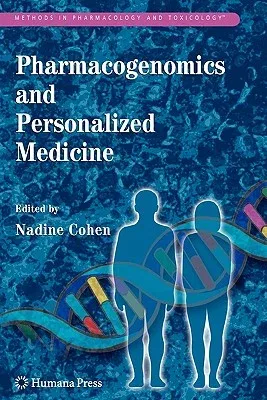concerns within the pharmaceutical industry about generating data that
might be difficult to interpret in a regulated environment. There is
also a growing apprec- tion for the challenges in translating this new
information into clinical utility, including scientific, commercial,
ethical, and policy challenges. Pharmacogenomics and Personalized
Medicine, which is part of the Methods in Pharmacology and Toxicology
series, comprises chapters on selected aspects of pharmacogenomics and
personalized medicine. Our overall intent is to assist both novice and
experienced investigators in understanding the current scientific ch-
lenges in applying PGx to discovery and clinical development and in
making app- priate decisions to engage in and interpret PGx research.
Designed to share the experiences of leading experts in the field, the
book is a useful guide for conducting PGx research--from discovery to
the market, but we also aim to present a realistic perspective on the
challenges, practicalities, and obstacles in applying pharmac- enomics.
Generally, the book avoids statements such as "Pharmacogenomics is going
to revolutionize the practice of medicine," which are neither realistic
nor particularly useful to anyone. The book presents an industry
perspective on the implementation of PGx in research and development, in
drug discovery, and in clinical trials, including rec- mendations for a
systematic approach for assessing the feasibility and added value of PGx
studies in clinical trials.


